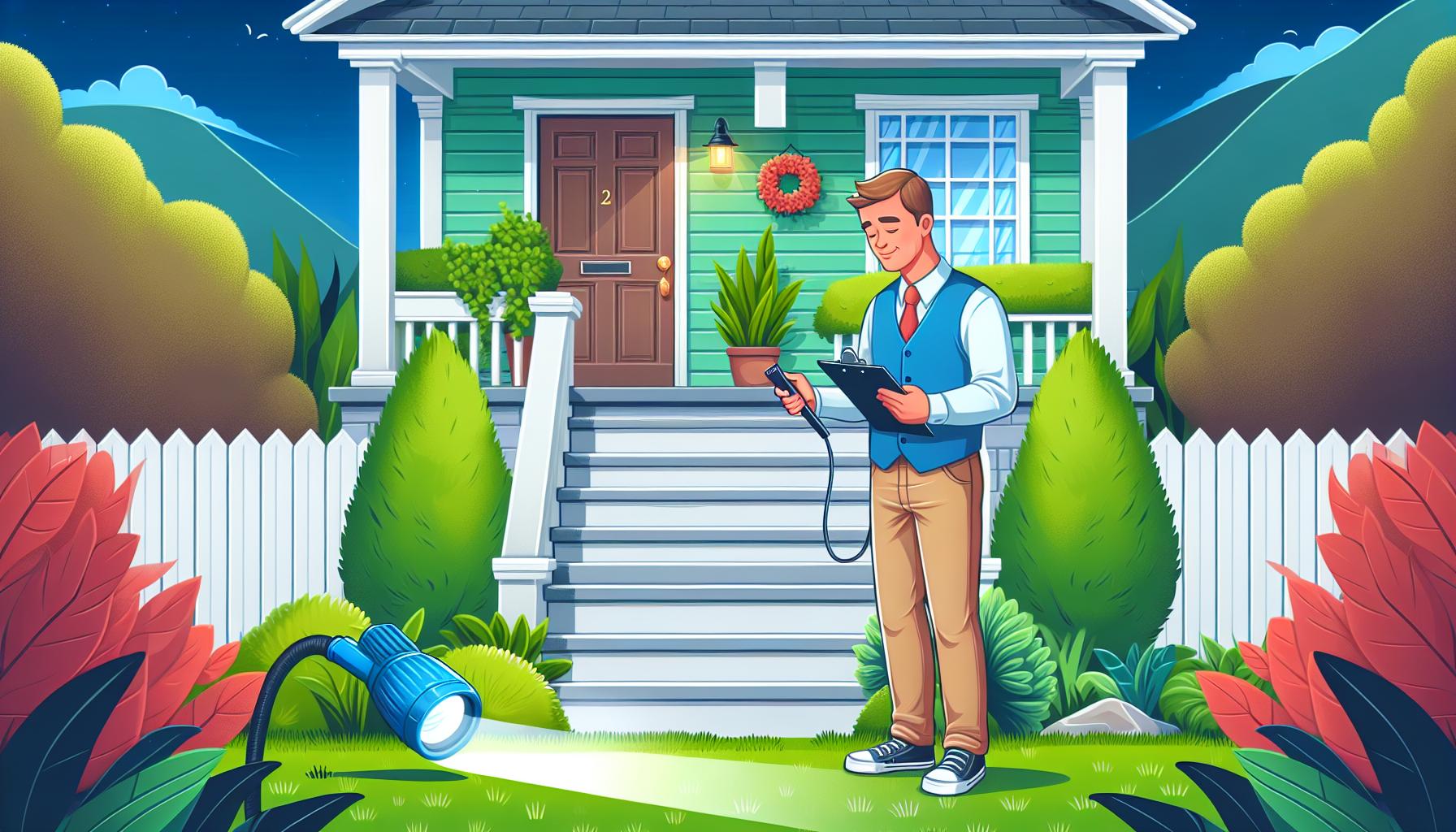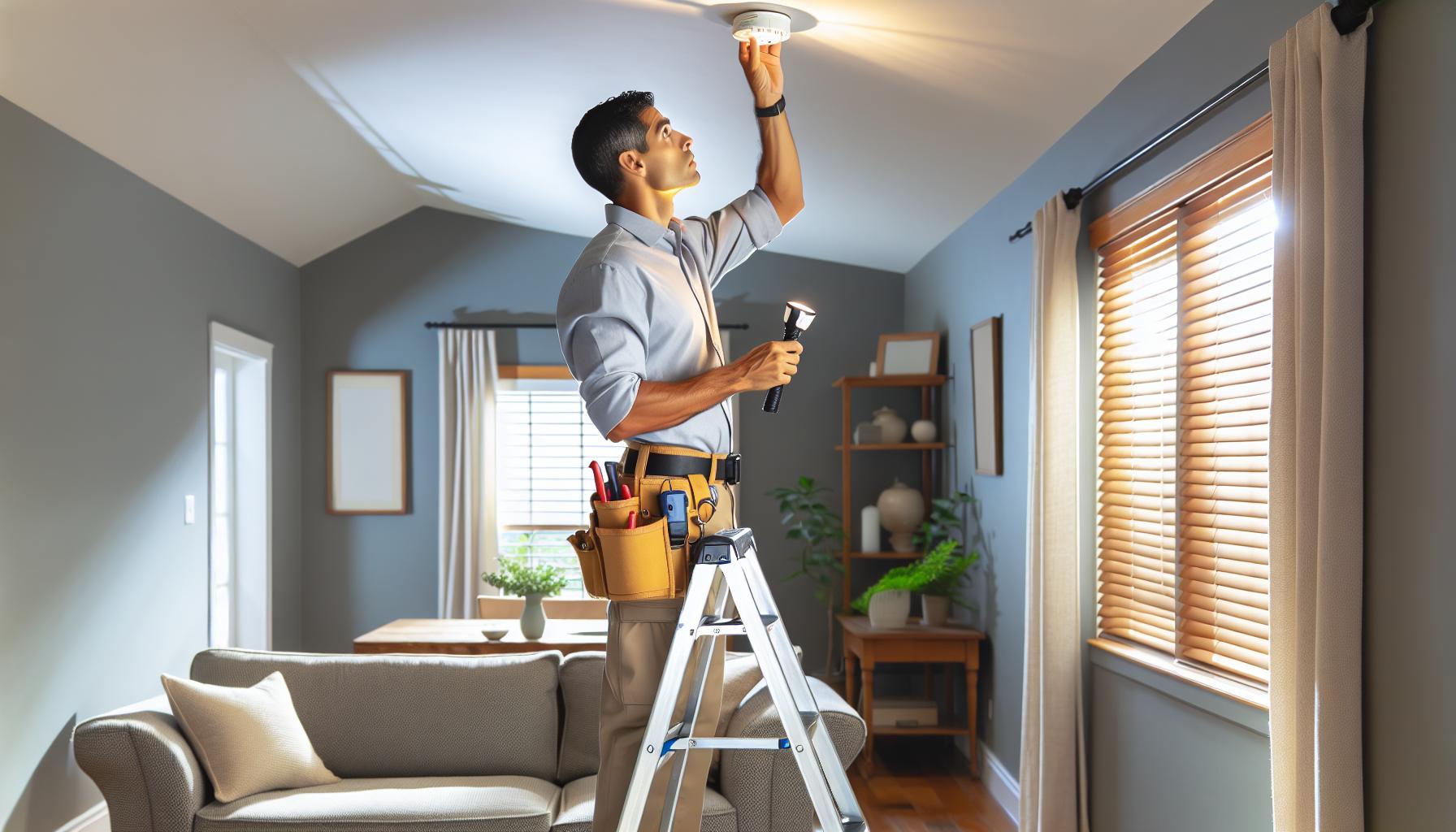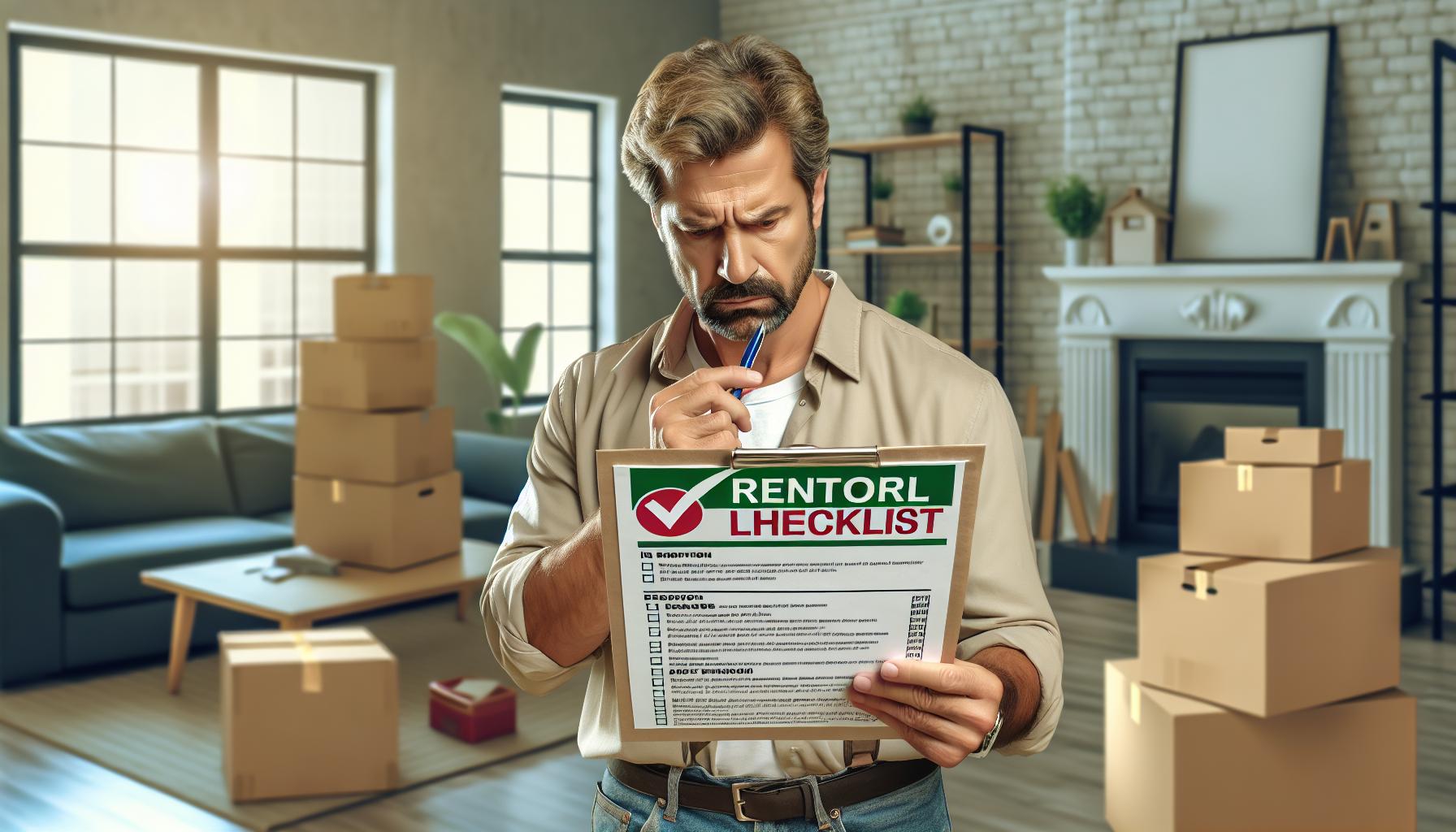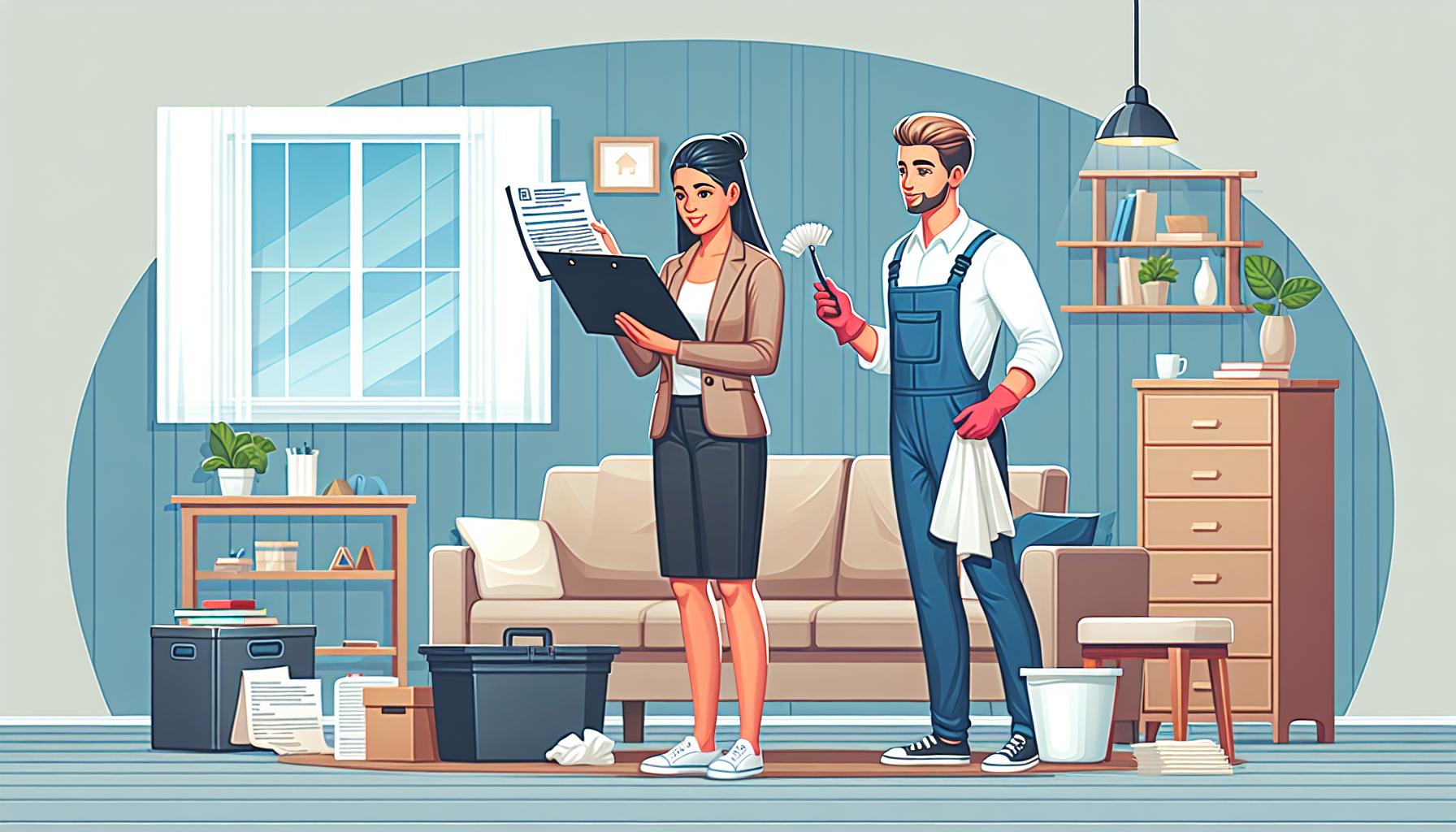Key Takeaways
- Regular rental inspections in Brentwood help maintain property value, ensure tenant safety, and identify issues early to prevent costly repairs.
- Inspections focus on key areas such as structural elements, safety features, plumbing, electrical systems, and appliances to comply with local regulations.
- Thorough documentation and compliance with safety standards foster trust between landlords and tenants while avoiding potential legal complications.
- Rental inspections benefit tenants by improving living conditions, identifying hazards, and enhancing overall comfort and safety.
- For property owners, proactive inspections protect investments, reduce long-term maintenance costs, and attract responsible tenants.
- Addressing tenant privacy concerns and clear pre-inspection communication can strengthen relationships and ensure smoother inspection processes.
Keeping a rental property in top condition can feel overwhelming at times. Have you ever wondered if your building is truly being cared for or if small issues are quietly turning into bigger problems? Regular inspections play a key role in maintaining your property’s value and ensuring tenants remain satisfied and comfortable.
In Brentwood, rental inspections aren’t just about checking boxes—they’re about protecting your investment and fostering trust with those who call your property home. A well-maintained property not only prevents costly repairs but also strengthens tenant relationships, ensuring steady occupancy and reliable income.
How can you be certain your property is receiving the attention it deserves? Understanding the importance of thorough inspections can make all the difference in keeping your building safe, functional, and appealing for years to come. Let’s explore why these inspections matter and how they can benefit both you and your tenants.
Overview Of Brentwood Rental Inspections
Rental inspections in Brentwood play a vital role in property management. These inspections confirm that properties meet safety standards, comply with local regulations, and remain in good condition. By addressing wear and tear early, owners can reduce high repair costs and maintain long-term tenant satisfaction.
Routine inspections typically include examining structural elements, electrical systems, plumbing, and appliances. Inspectors also check for safety hazards like faulty smoke detectors or exposed wiring. Thorough assessments protect tenants and help landlords avoid legal complications.
Brentwood’s rental market often requires keeping records of inspections. Documenting these assessments supports transparency and provides evidence of property upkeep. Frequent reviews can also boost trust between landlords and tenants, fostering positive relationships.
How do these inspections benefit you? They contribute to preserving property value while ensuring comfortable living conditions for tenants.
Purpose Of Rental Inspections

Regular rental inspections play a key role in managing Brentwood properties effectively. They safeguard the property’s condition while fostering a secure and comfortable environment for tenants. But what specific goals do these inspections serve?
Ensuring Tenant Safety
Tenant safety remains a top priority during inspections. Assessments focus on identifying hazards, like faulty wiring, unsafe staircases, or neglected smoke detectors. Inspectors examine these elements, addressing potential risks before they escalate.
Does your property meet local safety codes? Regular inspections answer this question by checking compliance with Brentwood regulations. Maintaining a safe environment supports tenant trust and satisfaction.
Maintaining Property Standards
Preserving property standards requires consistent oversight. Inspections protect rental properties from neglect by identifying minor issues, such as small leaks or damaged fixtures, that can lead to larger problems.
How do inspections support preventative maintenance? They highlight signs of wear, like cracked windows or aging appliances, offering opportunities to address issues before costly repairs become necessary. This approach helps retain property value and keeps tenants satisfied with their living conditions.
Key Features Of Brentwood Rental Inspections

Brentwood rental inspections provide property owners and tenants with actionable insights to maintain safety, compliance, and property condition. These inspections focus on identifying potential issues before they escalate.
Inspection Process
The inspection process typically involves a thorough review of the property’s interior and exterior. Detailed checks cover structural elements, such as walls, ceilings, and roofs, to identify damage or deterioration. Safety features, including smoke detectors and fire extinguishers, are inspected for proper functionality. Essential systems like plumbing, electrical wiring, and HVAC units are assessed to confirm they are in working order. During the visit, appliances provided by the property owner are also examined for performance and wear.
Photos and written documentation support findings during the inspection. This standardized approach helps me maintain a complete property history, which aids in future evaluations.
Common Compliance Requirements
Compliance requirements in Brentwood often revolve around safety standards and local regulations. For example, properties must meet basic fire and electrical safety codes to remain habitable. Properly installed and functioning carbon monoxide detectors, fire alarms, and egress windows are often mandatory. Signage or notices regarding emergency exits might also be required under specific leasing scenarios.
Inspections can reveal if any part of the property violates these guidelines or requires upgrades. Addressing such issues promptly keeps me aligned with legal obligations and avoids penalties. What steps could you take today to make sure your rental property meets these standards?
Benefits For Tenants And Property Owners

Rental inspections in Brentwood create advantages for both tenants and property owners. With a focus on maintaining quality living environments and safeguarding investments, these inspections foster a positive rental experience.
Improved Living Conditions
Routine inspections help create a safe and comfortable home for tenants. Identifying issues like leaking pipes, faulty outlets, or pest problems prevents small concerns from escalating into significant disruptions. Imagine living with broken locks or an unreliable heating system—inspections can address these before they cause discomfort. Tenants benefit from quicker repairs, safer surroundings, and a more pleasant daily environment.
Do you want a place where you can feel secure and at ease? Regular property evaluations contribute to this by spotting potential hazards early and prioritizing habitability. Cleanliness, functionality, and safety support a higher quality of life for those renting the property.
Protecting Property Investments
For property owners, inspections protect the value and longevity of their assets. By addressing wear and tear promptly, damage doesn’t worsen or require costly restorations later. For example, unnoticed water leaks can lead to structural problems, but routine checks mitigate such risks.
A well-maintained property attracts responsible tenants and reduces vacancy rates. Owners can identify issues tenants might overlook, such as HVAC inefficiencies or degrading roofing. These efforts promote smooth operations and long-term financial stability.
Are you looking for ways to maintain your property’s appeal and functionality? Proactive inspections minimize risks, reduce major expenses, and reinforce tenant trust. A cared-for property reflects its owner’s commitment to high standards.
Challenges And Criticisms

While Brentwood rental inspections offer significant benefits, they aren’t without challenges. Some landlords and tenants share concerns about potential drawbacks, which merit closer examination.
Potential Costs
Inspections can bring financial strain, especially for landlords managing multiple properties. Initial costs might include professional inspection fees or repairs identified during the process. For example, fixing non-compliant electrical wiring or replacing aging fixtures can add up quickly. Small landlords, in particular, may feel the impact more intensely when unexpected repair costs arise.
Do you find budgeting for inspection-related expenses challenging? Planning ahead might help. Setting aside a maintenance reserve during rental income cycles can reduce the financial pressure of sudden expenditures.
Privacy Concerns
Tenants often voice concerns about personal space being intruded upon during inspections. Scheduled walkthroughs, even if legally permitted, can feel disruptive. This is especially true when inspections occur frequently or with short notice. Tenants may wonder if their personal belongings are truly safe during these visits.
How can landlords address tenant discomfort? Clear communication prior to inspections and limiting their frequency can build a positive rapport. Offering flexible scheduling options can further demonstrate respect for tenants’ privacy needs.
Tips For Preparing For An Inspection

Preparation can simplify rental inspections and minimize potential issues. Proactively addressing key areas saves time and helps leave a positive impression.
For Property Owners
- Address Maintenance Issues
Inspect properties for visible damage or repair needs. Fix common problems like leaky faucets, damaged walls, or malfunctioning appliances before the inspection begins.
- Check Safety Features
Test smoke detectors, carbon monoxide detectors, and fire extinguishers. Ensure these safety devices comply with local regulations and are in working order.
- Review Documentation
Organize documents, including maintenance logs and inspection reports, for easy access. These records provide a clear track record of property upkeep.
- Communicate With Tenants
Inform tenants about the inspection schedule early. Share details about its purpose, scope, and expected outcomes to avoid misunderstandings.
For Tenants
- Tidy Living Spaces
Clear clutter from floors, countertops, and shared spaces to allow easy access for inspectors. Cleanliness makes identifying potential issues simpler.
- Report Issues Promptly
Notify property owners of any concerns, such as dripping pipes or stuck windows, before inspections. Early communication fosters faster resolutions.
- Secure Personal Belongings
Store valuable or sensitive items in secure locations. This provides peace of mind during inspections without disrupting the home’s preparation.
- Be Present Or Reachable
Coordinate availability or provide contact details in case clarifications are needed. Being accessible during inspections demonstrates cooperation and accountability.
Conclusion
Brentwood rental inspections are a vital aspect of effective property management. They safeguard investments, promote tenant satisfaction, and ensure compliance with safety standards. By addressing issues early and fostering open communication, inspections create a win-win situation for both landlords and tenants. Prioritizing these routine checks not only preserves property value but also strengthens trust and long-term relationships.
Frequently Asked Questions
What is the purpose of rental inspections?
Rental inspections aim to maintain property value, ensure compliance with safety standards, and address maintenance issues before they escalate. They benefit both landlords and tenants by promoting safety, comfort, and long-term trust.
Why are rental inspections important in Brentwood?
In Brentwood, rental inspections are crucial for ensuring properties meet local safety regulations, preventing costly repairs, and protecting the investment value. They also help foster strong landlord-tenant relationships and ensure consistent occupancy.
What do routine rental inspections typically include?
Routine inspections cover structural elements, electrical systems, plumbing, appliances, and safety features like smoke detectors. Both the interior and exterior are examined for potential hazards or maintenance needs.
How often should rental inspections be conducted?
Rental inspections are typically done at move-in, move-out, and periodically (e.g., quarterly or annually). Regular intervals ensure timely identification of issues and allow for proactive maintenance.
How do rental inspections benefit landlords?
Landlords benefit from rental inspections by identifying and addressing wear and tear early, preserving property value, ensuring compliance with laws, and reducing vacancy rates through tenant satisfaction.
How do rental inspections benefit tenants?
Rental inspections ensure tenants live in a safe and comfortable environment. They help identify and resolve issues like leaks or faulty systems, enhancing the overall quality of living.
What are common safety concerns identified during inspections?
Common safety concerns include faulty wiring, missing or non-functional smoke detectors, plumbing leaks, structural damage, and fire hazards. Addressing these ensures compliance with safety codes.
Are rental inspections intrusive for tenants?
While inspections may feel disruptive, proper communication and respectful scheduling can alleviate discomfort. Tenants can prepare by tidying their space and addressing any concerns upfront.
What challenges are associated with rental inspections?
Challenges include financial costs for landlords, potential discomfort for tenants, and scheduling conflicts. Clear communication and flexibility can help mitigate these issues.
How should property owners prepare for rental inspections?
Property owners should fix maintenance issues, check safety features like fire alarms, review documentation, and communicate the inspection schedule with tenants in advance.
What can tenants do to prepare for rental inspections?
Tenants should organize their space, report any existing issues, secure personal belongings, and be available or reachable during the inspection to address questions or concerns.
Does Brentwood have specific rental inspection requirements?
Yes, Brentwood properties must meet local safety and compliance standards, including fire and electrical codes. Regular inspections often reveal violations or improvements needed to meet these requirements.
How do rental inspections help with tenant retention?
By maintaining a safe, clean, and well-functioning property, inspections improve tenant satisfaction and trust. This leads to longer lease terms and reduced tenant turnover.
Can rental inspections prevent costly repairs?
Yes, routine inspections identify minor issues early, such as leaks or electrical problems, preventing them from escalating into costly repairs or major damages.
Is documentation during inspections necessary?
Yes, documenting inspections with detailed reports and photos builds transparency, ensures accountability, and provides a clear record of property maintenance for owners and tenants.
